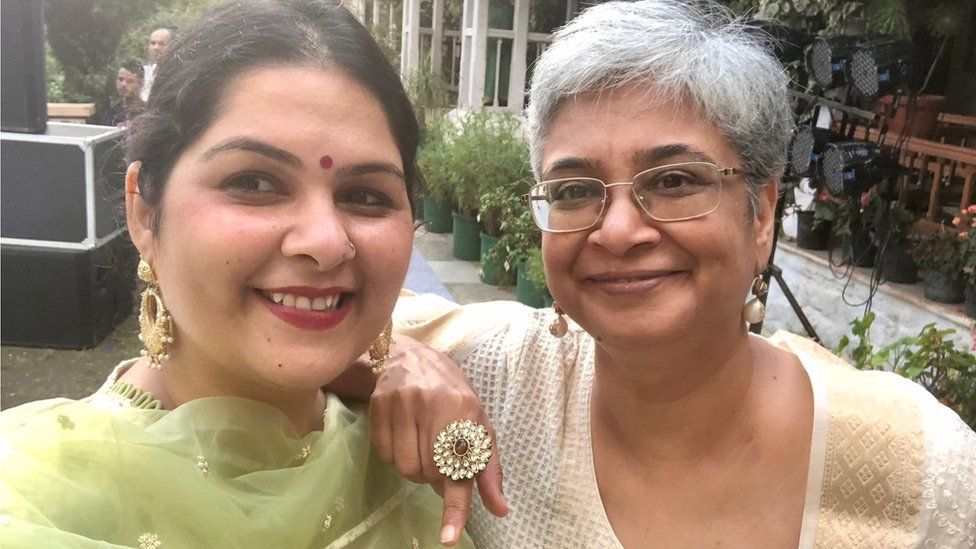
by Muhammad Adil 19 June 2023
On January 26, 2023, the Supreme Court (SC) of India directed the transfer of all petitions pending before different high courts to itself, seeking legal recognition of same-sex marriage. Followed by that on March 12, 2023, the government of India filed an affidavit exclaiming that the traditional concept of marriage in India entails a “biological man and a woman” and it wouldn’t be a feasible vicissitude for the court to alter the continuing legislative policy of the country that was/is deeply embedded in religious and societal norms. Further, the affidavit pointed out that any dilution and disturbance with the heteronormative concept of marriage by judicial interpretation will be malicious deception as it goes against the delicate balance of different personal laws (codified/uncodified) and old-age social values.
However, despite the central government’s contentions Supreme Court referred the case to the constitutional bench looking at the broader propositions of the petitioners and elements of facts concerning statutory provisions and constitutional rights. Supreme Courts’ (SC) passionate disposition was a dispassionate move for the Union of India (Central Government), and filed second affidavit to SC and contended the maintainability of petitions on ground as stated; law making should be left to the parliamentary wisdom, the court is incompetent for such a move. Further it said, seeking marriage equality is an “urban elitist” view for the social acceptance, while the popular will of common people is still only concerning marriage as an “exclusive heterogenous institution”.
The jurisprudential aspect of the Union of India’s contention can be easily contested, an individual or a group (aggrieved party) can approach to the Supreme Court under Article 32 of the Constitution. Therefore, the governments contentious layouts were mostly counts on “public/popular morality”, which is contrary to the very notion “constitutional morality”.
There is copious way in which “constitutional morality” may be defined but broadly this pertains two distinctive facets; firstly, the opposite of popular morality, and secondly, the spirit or essence of the Constitution. And the puzzle of constitutional spirit and essence can’t be understood without understanding the goals and aspiration present in the preamble, which unequivocally grants, Justice, Liberty, Equality and Fraternity (encompasses dignity) to its every citizen.
The interpretation of constitutional morality in terms of “gender nonconforming” peoples right begin with Naz Foundation vs Government of Nct of Delhi (Naz Foundation), leading constitutional scholar Gautam Bhatia in his book “Transformative Constitution A Radical Biography in Nine Acts” citing the judgement of Naz Foundation argues that the desire to enforce certain morality, can’t constitute public interest, and criminal law can’t enforce private morality. He further argues; it is directly contrary to the morality that is grounded within the constitution, which expressly recognizes, protects and celebrates diversity. Stigmatizing homosexuals on the basis of their sexual identity violates constitutional morality, which is the only kind of morality that is relevant for constitutional adjudication. Constitutional morality as derived from constitutional values, distinct from public morality, which is based on shifting and subjective notions of right and wrong.
In the same Naz Foundation case Delhi High Court had hold the position that without dignity and privacy an individual can’t enjoy life which is very much a part of Article 21, of the constitution, second it said Section 377(section previously criminalizing homosexuality) of Indian Penal Code (IPC) is violative of Article 14 & 15; because that lead to unreasonable class discrimination of homosexuals and criminalizes the consensual sex of two consenting adults and also Article 15 prohibits discrimination on the basis of sexual identity of an individual. After this huge deliberation by the Delhi High Court, the court left the amendable part of Section 377, to parliament but the parliament took no step. As consequence homosexuality remain a criminal offence until 2018, when SC decriminalized homosexuality in Navtej Singh Johar vs UOI by largely upholding the jurisprudence to Naz Foundation and declared Section 377 unconstitutional to the extent prohibiting “carnal intercourse against the order of nature”. This victory was a bitter sweet victory as though there were no marital provisions either under any personal laws or under Special Marriage Act, 1954.
As of now after ten days of rigorous hearing on 11th May SC has reserved the judgement on batch of petitions seeking legal recognition of same sex marriage. So, in order to preserve the sanctity of constitutional morality and avoid travesty of justice, expecting SC should upheld the grievances of petitioners. What comes out of it, is question of time, until then we have to wait and watch.
